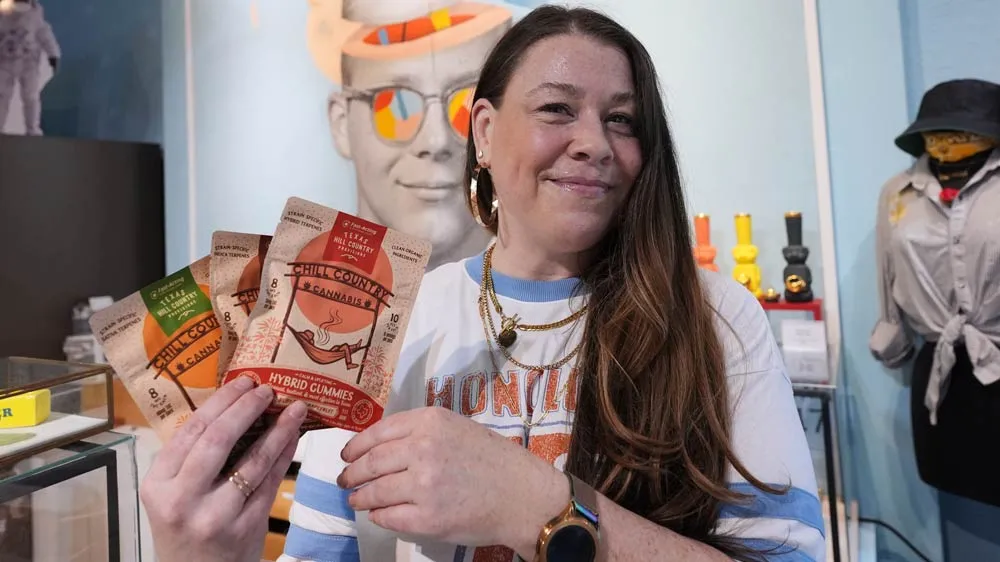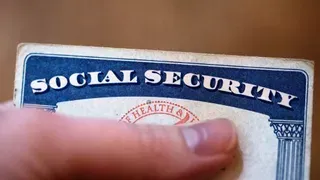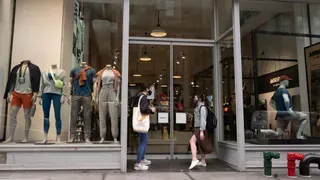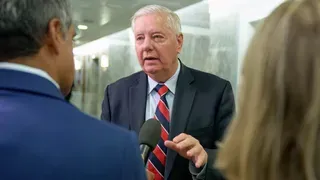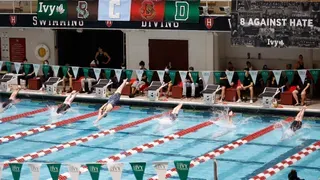July 31, 2021
PTown Resident Andrew Sullivan Wonders, 'Do We Really Want to Get Back To Living?'
READ TIME: 4 MIN.
After out, conservative pundit Andrew Sullivan began getting texts and emails from friends that they had COVID symptoms, he wondered if he should get tested. A Provincetown resident, the social media messages came from friends that had visited the town over the Fourth of July weekend, which has become national news as something of a canary down the coal mine for the rest of the country as the Delta-strain appears to infect both the vaccinated and unvaccinated.
He then received a directive from local and national health agencies that he had likely been exposed to the Delta variant and should be tested. Sullivan didn't, citing that he has had no symptoms and felt better because he had a Pfizer shot after an initial Johnson & Johnson one.
And while he is concerned about the pandemic and its ramifications moving forward, he does not see his hometown's outbreak as indicative of what will happen nationally. "Is Provincetown our future? Count me skeptical," he writes in a Weekly Dish column about the Covid outbreak in his home town. Instead, he puts the situation on a Perfect Storm of factors: the Fourth of July weekend, which brings in many day-trippers; steady rain; the start of Bear Week, which brings thousands of men to party; and many traveling from New York City, which had just had Pride Weekend.
"A tiny town built for a few thousand residents has to absorb up to 40,000 in peak season," he writes."One bar in particular – the home for a dance party with the inspired name of "Fag Bash" – resembles a kind of dank dungeon where sweat drips from the ceiling and mold reaches up the walls. It might have been designed for viral transmission. A big swathe of the crowd had also just come from a week of Pride partying in New York City and were likely not, shall we say, at their immunological best. It was a muggy, viral heaven in a classic post-plague burst of bacchanalia."
While he didn't (and wouldn't likely have) gone to the event, he did say he had a blast at an open-air T-dance. "And why not?" He writes. "I'm double-vaccinated. The chances of becoming sick enough to be hospitalized are extremely small; the chance of death, none at all."
He referenced a friend who had contacted him. "He endured a nasty week of a fluish bug: the kind of thing that happens without any plague at all," he writes. "Just part of the inherent risks of being human on a planet that does not belong exclusively to us."
His key question is, "do we really want to get back to living?"
Sullivan acknowledges that he will follow restrictive protocols (involving mask readings, etc.) and feels that those who do not want to follow them should. "In a free society, once everyone has access to a vaccine that overwhelmingly prevents serious sickness and death, there is no reason to enforce lockdowns again, or mask mandates, or social distancing any longer. In fact, there's every reason�not�to...
"Forcing all the responsible people to go back to constraining their everyday lives for the sake of the vaccine-averse is both unfair and actually weakens the incentive to get a vaccine, because it lowers the general risk of getting it in the broader society."
Sullivan feels the government can do some things, such as "making vaccination mandatory for federal workers and contractors, and especially in the military as George Washington did in the Revolutionary War for smallpox. It could offer money – or entry into a lottery, as�many states�are doing. All good. But the most potent incentive for vaccination is, to be brutally frank, a sharp rise in mortality rates. The more people who know someone who has suffered and died the likelier they will see the logic of taking measures to avoid the same fate. In other words: if people recklessly refuse to face reality, call their bluff."
He adds that "the one silver lining of plagues in the past is that, at some point, they blew themselves out, by creating herd immunity."
He also points out that this isn't an optimal strategy but relates it to his own HIV issues. "Living with a virus – rather than defeating it – is not emotionally satisfying. It does not, in our minds, remove the threat. But the truth is: humans have no choice but to live with viruses. We always have. I've lived with a potentially fatal one buried in my bone marrow for almost 30 years. I still test HIV-positive. Almost certainly, I will die HIV-positive. But I will not die of HIV. And that's ok. As long as I can prevent it wreaking havoc on my immune system, and ruining and ending my life, I'm content to live with it.�We're almost friends at this point."
Sullivan concludes that we should not allow Covid to rule our lives. "These viruses challenge the psyche, and the trick, it seems to me, is not to deny their power and danger, but to see past them to the real goal: the living of your life. If you are not careful, this one viral threat can crowd out all other perspectives, distort your judgment of risk, and cause you to be paralyzed by excessive caution and fear. But defeating a virus often does mean living with it. We already do this with the flu. There's no reason we can't do it with Covid as well."
